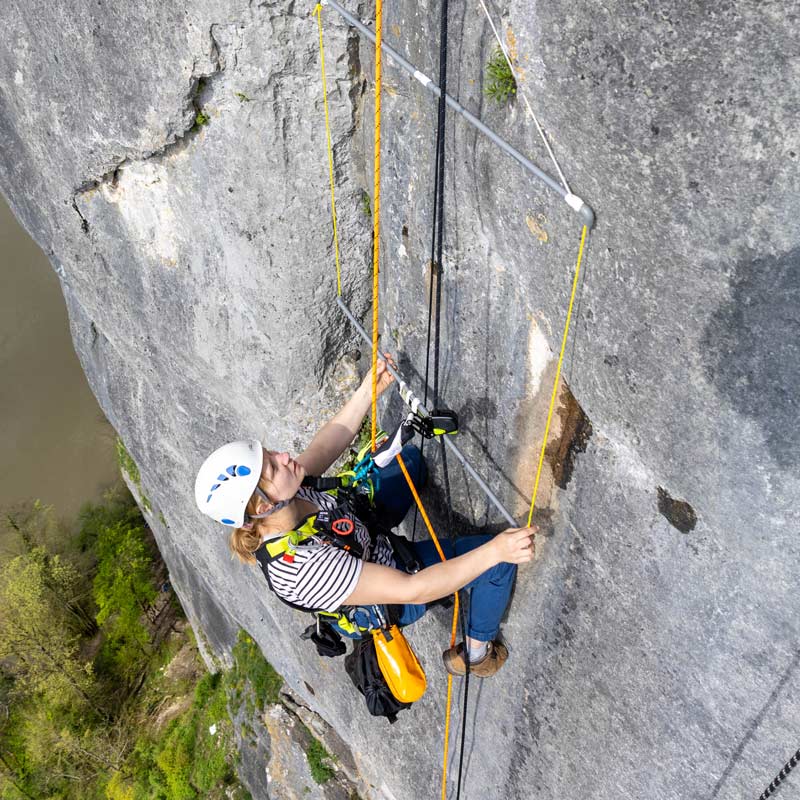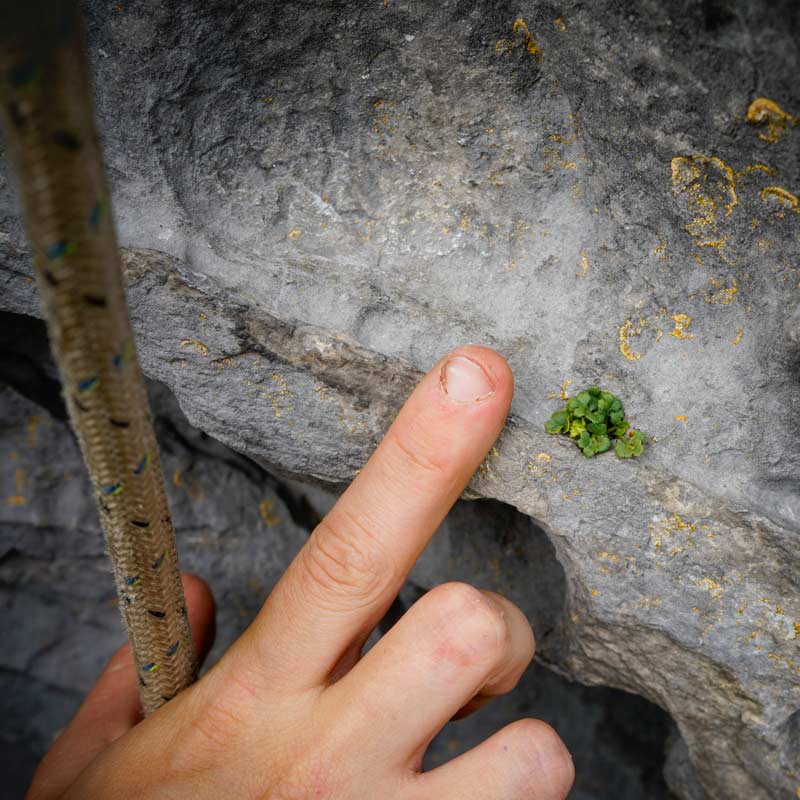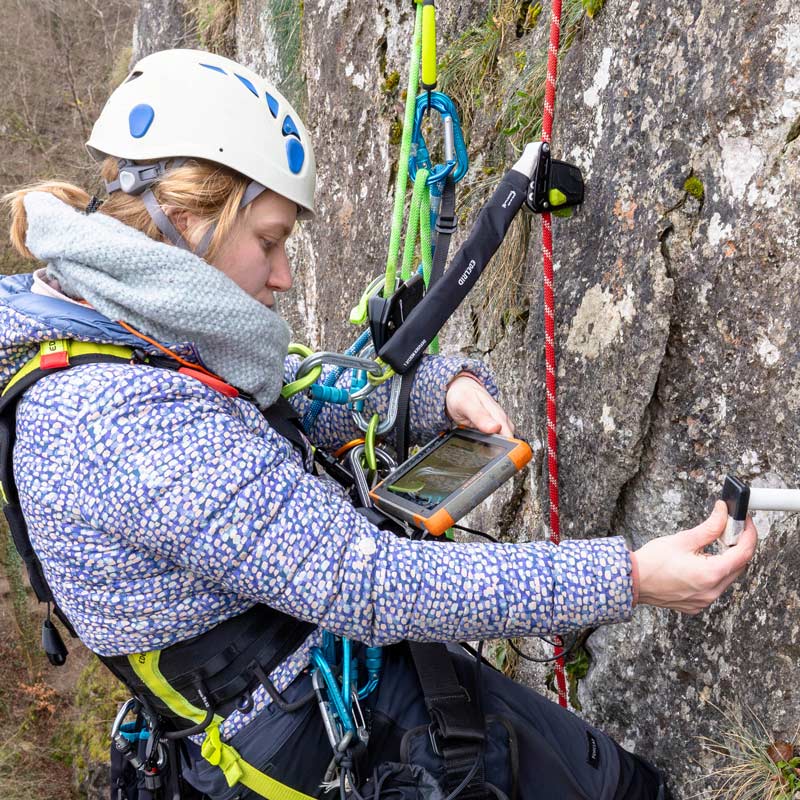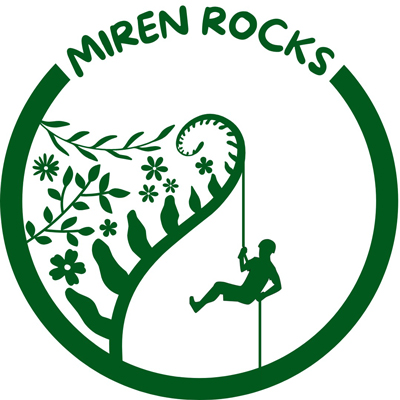Exploring the effects of climbing on vegetation
PROJECT TITLE
MIREN Rocks
NAME OF ORGANISATION
Mountain Invasion Research Network
Snapshot
MIREN Rocks is a global research initiative, led by the Utrecht University, University of Antwerp, and KU Leuven that explores how recreational rock-climbing impacts biodiversity on cliffs. The project is part of the Mountain Invasion Research Network (MIREN), a long-standing international effort to understand how human activities and climate change affect mountain ecosystems.
Mountains are biodiversity hotspots, and cliffs in particular, host unique plant communities specially adapted to extreme conditions. Yet, these fragile vertical habitats are often overlooked in ecological research, simply due to the sheer complexity of studying them. MIREN Rocks fills this critical gap by studying how climbing routes affect vegetation, introduce non-native species, and alter microclimatic conditions on cliffs.
View of MPA Assessor
The project offers a new connection between rock/cliff climbing and plant biodiversity research. The question of how cliffs, plant ecosystems on these cliffs, and climbing them interact is a very interesting topic. The foundational work achieved by MIREN is impressive, particularly the research protocol, governance model, and the community representation.
Project Objectives and Vision
MIREN Rocks started in December 2023 and is an open-ended project. It so far has been implemented in Belgium, Austria, China, Germany, Italy, Slovakia, Spain, Sweden, USA, and South Africa. What makes MIREN Rocks unique is its integration of outdoor sport and science. The vision of MIREN Rocks is to integrate outdoor recreation and scientific research to protect the biodiversity of one of Earth’s most overlooked habitats: vertical rock faces. The protocol is designed by and for climbers with ecological expertise. Surveys are conducted by experienced climbers who rappel from the top of cliffs and establish standardized 1 m² vegetation plots along and adjacent to bolted climbing routes. Using a combination of botanical observations, photography, and microclimate sensors, the project creates a detailed record of cliff-face ecology that can be monitored over time.
MIREN Rocks is not only about measuring ecological impact, it also aims to build bridges between scientists and the climbing community. The project invites participating ecologists to team up with local climbers and conservationists to participate in data collection, and in doing so, promotes environmental awareness, stewardship, and long-term monitoring. The protocol is open-access and adaptable worldwide – for those with ecological training – allowing comparisons across continents and climbing cultures.
By understanding how climbing influences cliff ecosystems, MIREN Rocks helps develop sustainable climbing practices and informs conservation strategies for mountain regions under increasing recreational and climatic pressure. It also contributes valuable insights into how species respond to microclimatic variation, which is key to predicting biodiversity responses to climate change.
Ultimately, MIREN Rocks celebrates the synergy between adventure and environmental care. It transforms climbing from a personal challenge into a tool for scientific discovery and global ecological insight.
The goals of MIREN Rocks are fourfold:
- Assess the ecological impact of climbing on cliff vegetation, including species richness, abundance, and composition.
- Detect the presence of invasive or non-native plants that may spread through climbing corridors.
- Explore the role of microclimates in shaping plant communities on cliffs, and how these microhabitats may buffer against climate change.
- Build a collaborative global network of climbers, scientists, and land managers committed to sustainable recreation and biodiversity monitoring.
The project is rooted in collaboration, open science, and mutual respect between the climbing and conservation communities. Rather than viewing climbing as a threat to biodiversity, MIREN Rocks demonstrates how climbers can be key allies in protecting and understanding the natural environments they traverse. By participating in this research, climbers become stewards of the cliffs they love.
Contact Details, Discover More & Support
UIAA Mountain Protection Award Nominees






